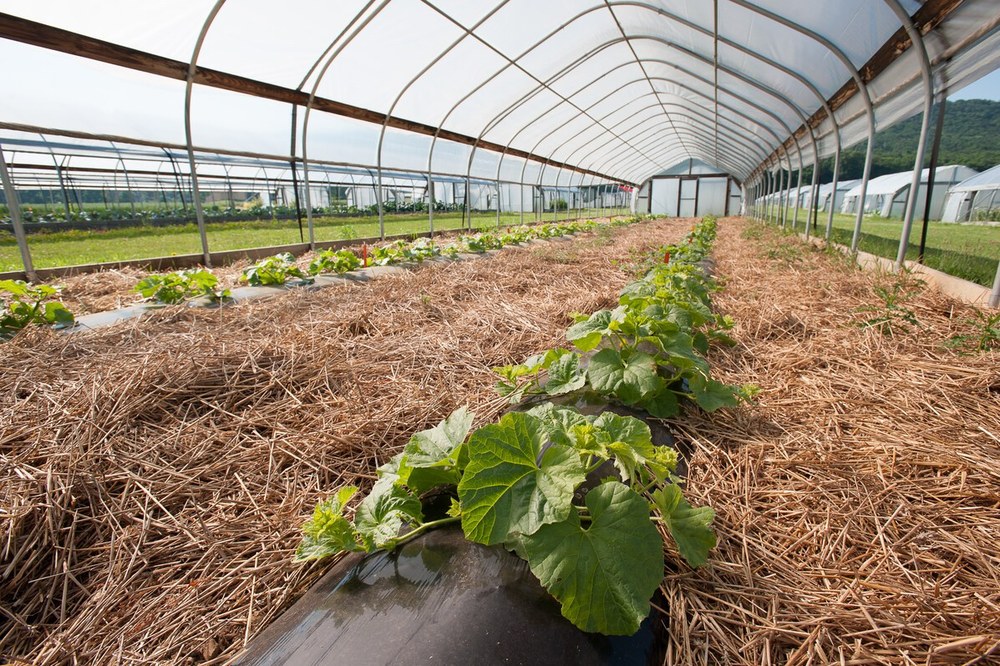Learning how to support soil microbiomes for crop health and yield.

Photo: Gordon Harkins, Penn State
Problem
How can soil quality be sustained under intensive, repeated use?
- Although high tunnels can extend the growing season, the quality of the soil under them tends to degrade over time, and crop disease can increase.
- Growers often use chemical fumigation or other soil-sterilizing approaches to kill disease-causing microbes, which can wipe out beneficial microbes essential to plants.
Findings
Researchers looked at how high soil salinity and high soil nitrogen concentrations altered soil microbiome development. They buried small nylon mesh bags containing unsterilized "source" soil in sterilized "recipient" soil and left them to incubate for seven weeks. Recipient soils were amended with salt, nitrogen, both, or neither to determine whether these properties impacted the microbial communities' composition in the recipient soil.
- They found that higher soil salinity and higher soil nitrogen delayed the re-establishment of a diverse soil microbiome.
Impact
The results of this study help to untangle the many factors impacting the recolonization of microbial communities that benefit crop production. The team's findings are laying the groundwork for the development of guidelines that will aid farmers in improving soil fertility, and by extension, crop health and yield.
Research Credit
Team
- Laura Kaminsky, Paul Esker, Terrence Bell
Participating Department
Competitive Funding
- USDA NIFA (Organic Transitions Program)
- NSF (Graduate Research Fellowship)
Federal and State Appropriations
Emerging Discoveries
Published Research
Abiotic conditions outweigh microbial origin during bacterial assembly in soils.
-
Kaminsky, L. M., Esker, P. D., & Bell, T. H. (2021). Abiotic conditions outweigh microbial origin during bacterial assembly in soils. Environmental microbiology, 23(1), 358-371. https://doi.org/10.1111/1462-2920.15322
Office for Research and Graduate Education
Address
217 Agricultural Administration BuildingUniversity Park, PA 16802-2600
- Email agresearch@psu.edu
- Office 814-865-3136
Office for Research and Graduate Education
Address
217 Agricultural Administration BuildingUniversity Park, PA 16802-2600
- Email agresearch@psu.edu
- Office 814-865-3136


